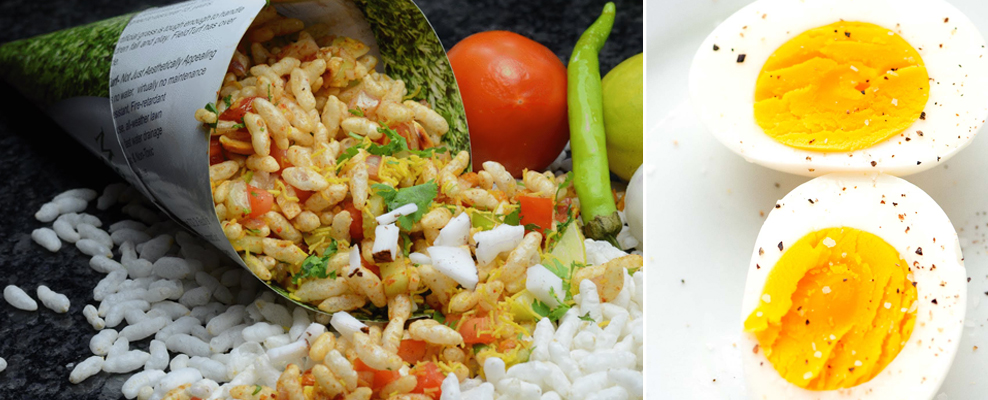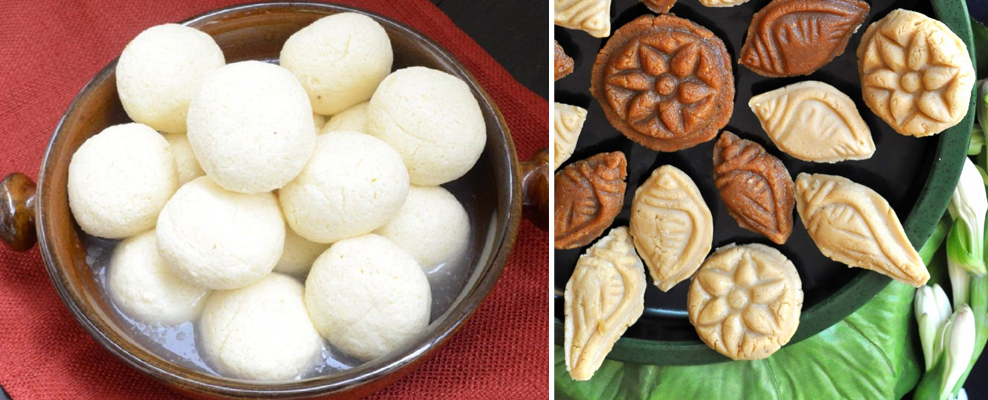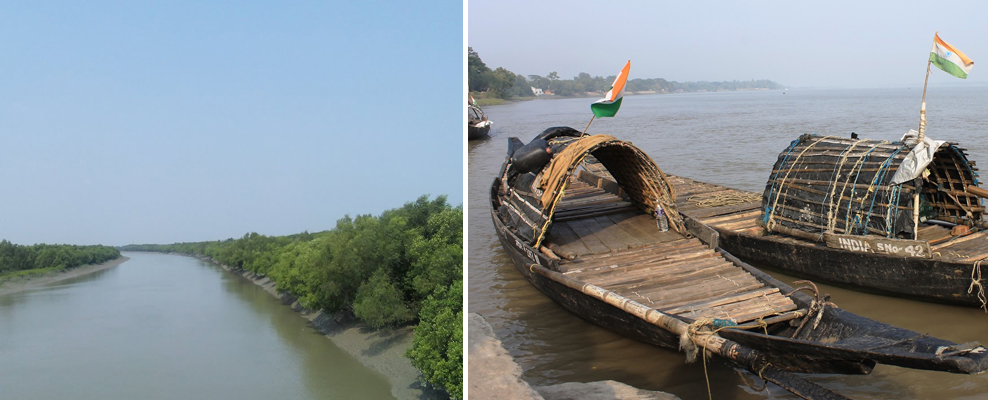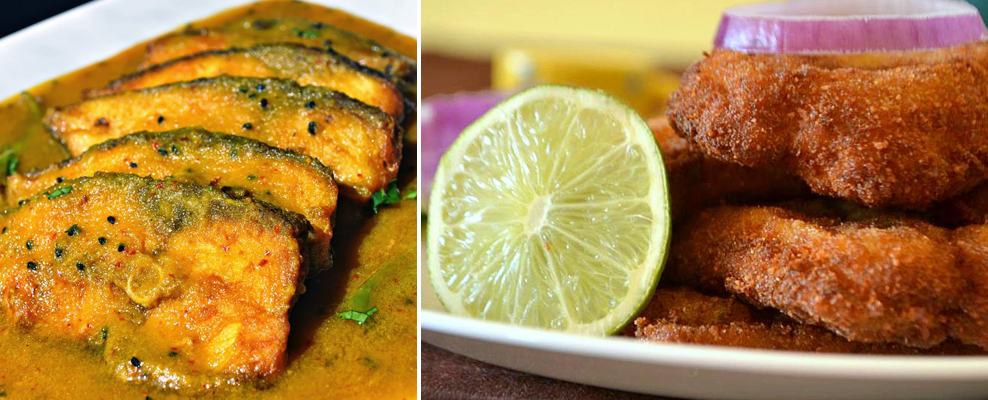“Take the 9.28 am Hasnabad local and get down at Taki railway station,” said Subed Ali Gazi when I telephoned him and informed him of wanting to get away from the sweltering heat and traffic of the city. It was an early Saturday morning.
I quickly readied myself, packed a backpack with my laptop, a pair of shorts and a couple of T-shirts and took a cab to Sealdah Railway Station. As I had left hurriedly, I did not even have ample time for a proper breakfast except for a couple of cups of black coffee and biscuits.
Arriving at Sealdah, and purchasing a ticket through an automated machine (which cost only Rs. 20) would not have been a problem at all to the tech savvy, but being electronically-challenged, I requested assistance from a young student.

As the train left I started feeling hungry. “Jhaal muri, jhaal muri” called out a hawker inside the compartment, which was pleasant as I got a window seat. I took one packet of that spicy and delicious puffed rice but was still ravenous. Then I heard a loud voice selling: “Seddho deem” (boiled eggs). I immediately ordered two which was adequately served with pepper and salt.
I reached Taki at noon under a blazing sun. As I stepped out of the railway station there were the locals to help me to get into a quaint “van rickshaw” (a plank of wood on four wheels attached to a cycle to pull on). I gave them the name of the guest house and I was soon inside the cool atmosphere of an air-conditioned room.

The lunch was fantastic. Lentil soup with “aloo bhaja” (potato friend thin), Gandhoraaj lebu (scented lemon), fish and local chicken curry instead of the rubber like broiler chicken served in the city!
After lunch, I ventured out excitedly even under the blazing sun and found the promenade on the river Ichhamati. There was a BSF outpost on the banks of the river which divides India and Bangladesh and the two jawans—Jaikishen from Jharkhand and Selvan from Tamil Nadu allowed me to take a look with their binoculars towards Saatkhira in Bangladesh.

The wind was blowing but it was hot and the shops at the promenade were all closed. People usually take a siesta during the afternoon hours here. But I was approached surreptitiously by Barun Das who owns a boat and takes tourists for a ride.
“Saheb, only Rs. 1,000 for an hour’s boat ride, early tomorrow morning, to a nearby island. But if you pay Rs. 2,000 we can go up to the mini-Sunderbans and you can cross the international border and have a look at Bangladeshi fishing boats and villages. And if the BSF boats are not there, even meet and talk to local Bangladeshis.”
Exhausted from my trip and the sunlight beating upon me, I returned to the guest house for a nap.
I was woken up by Buro, the congenial bearer in the guest house waiting hand-on-foot with tea and biscuits as he shook me and said: “Dada, please wake up its almost 5 pm and time to go out”.

As I ventured out, the scenario was entirely different from the afternoon. The sun was about to set and the temperature was perceptively cooler. There were a number of people at the promenade and as it became cool and dark others joined them here. The shops were open and doing brisk business − selling branded potato chips, fried chicken, and local sweets like “rosogollas and sandesh”.
There were young couples who cozied up to each other on the benches overlooking the Ichhamati and tourists who sat on the concrete benches.
Barun’s son Debashish (who works for the local Taki Municipality, founded by the British 140 years ago) pushed in a pen drive as he stepped on the promenade. Popular Bengali songs blared out.
“Sir, please come for an early boat ride tomorrow. We can take you to the Bangladesh border with only 10 feet away where you can film their village and the Bangladeshis fishing. If you pay Rs. 2,000 we can take you to the Sunderbans too and if you are lucky you can even see the Royal Bengal Tiger! Even if not the tiger you can see the real Sunderbans which the conducted tours from Kolkata never offer! You can even talk to Bangladeshis and listen to their tale of woes whether Muslims or Hindus,” said Debashish. “We can cook fresh Hilsa fish and rice for you on the boat. That is a different taste altogether when cooked on the boat,” he said.

Next early morning even before the sun rose, I hired Barun and got into his boat.
“Saheb, please no cameras allowed as the BSF is watching us,” he said.
He steered the boat along Ichhamati and went straight down towards the Bay of Bengal. On the other side the sun was rising on Bangladesh.
Barun suddenly went towards Saatkhira and to the Zero point—the place which divides India and Bangladesh. He then started talking with some fishermen. He bought a large Hilsa fish whilst his henchman who was doing the talking went on with his job.
After about after two hours’ sailing we reached dense forests. “Saheb be careful here because tigers can even jump on the boat and take you away. So better be inside the cover and keep watching,” he said.
The scenery was breath-taking. But the BSF boats were also sailing around so we had to move quietly on the water.
For the locals, lunch-time is around 10 am. By that time Sukur Ali had made a Hilsa curry with mustard oil and “kaalo jeera” and some fried fish too. “Saheb time for lunch”, he said.

We had lunch on the boat. Fried Hilsa cooked with mustard oil and mustard Hilsa curry with rice!! Never ever, even as an iterant traveler and Bengali, had I savored such delicious food which tasted totally different than what is served in most places in Kolkata! Probably cooking freshly caught fish from the river, just tastes different!
Now it was time to return.
With the Indian flag hoisted very high Barun steered us back to Taki. The BSF jawans were gazing in our direction but never bothered to really take a look at us. The nocturnal life at Taki is ominous with smuggling of all kinds of contraband. So during the day they were least bothered with small sailing vessels in plain sight.
I paid and walked backed to the guest house. The room was cool with the AC blazing. “Sir, where did you disappear from morning?” asked Buro.
When I told him about my boat ride he insisted, “You cannot leave like this. Please take some rest since you already had lunch”.
Around 4 pm, Buro brought some local “telebhajha” (fried potato chips, brinjal, onions and plantains) along with puffed rice and luchis. And of course Takis famous rossogolas too.
After a restful nap I ventured out again to the promenade to take a final stroll, biding good-bye to this scenic little border town. By that time Buro had called a van rickshaw to take me to the railway station.

While returning I found hawkers selling various things. “Kacha amlaki, kacha amkaloki, shorierer janye bhaalo,” (raw aamla good for your health). I bought ten packets and starting eating my aamlas (spiced with pepper and salt) right away.
All the way back Sealdah I and kept munching on the raw aamla, reminiscing about my little adventure as I returned to city life in Salt Lake once again.
